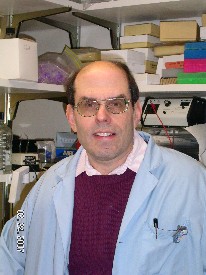Our Science – Young Website
Howard A. Young, Ph.D.
 |
|
|||||||||||||||||||||||||
Biography
Dr. Howard Young obtained his Ph.D. in microbiology at the University of Washington and carried out postdoctoral research at the NCI under Drs. Edward Scolnick and Wade Parks. He was a member of the Laboratory of Molecular Immunoregulation, NCI, from 1983 to 1989 prior to joining the Laboratory of Experimental Immunology in 1989. He was President, International Society for Interferon and Cytokine Research (2004-2005) and served as Chair of the Immunology Division of the American Society for Microbiolgy. He has also served as Chair of the NIH Cytokine interest Group and co-Chair of the NIH Immunology Interest Group. He is a two time recipient of the NIH Director's Award for Mentoring (2000, 2006) and in 2006 he received the National Public Service Award. In 2007 he was named Deputy Chief, Laboratory of Experimental Immunology.
Research
Regulation of Cytokine Gene Expression
The Cellular and Molecular Immunology Section studies the control of gene expression during the development and maturation of the cellular immune system in mediating antitumor and anti-inflammatory immune responses. The general goals of this section are to use molecular approaches to: (1) investigate in detail the molecular mechanisms by which gene expression is regulated in immune effector cells; and (2) study the mechanism(s) by which tumor cell susceptibility to biological and immunological defense systems can be enhanced through the control of specific gene expression. The specific aim of the Cellular and Molecular Immunology Section is to study human and murine cell-mediated immunity, with emphasis on natural killer (NK) cell- and T cell-specific regulation of gene expression. T cells and NK cells are the two predominant cell types that express interferon-gamma (IFN-gamma), and IFN-gamma transcription occurs after stimulation of these cells with numerous exogenous stimuli, including interleukin 2 (IL-2), IL-4, IL-12, IL-15, IL-18, IL-21, interferon-alpha/beta and PKC activators. Furthermore, the balance between IFN-gamma and IL-4 expression in vivo plays an important role in determining host resistance/susceptibility to many disease states. We have defined regions of human IFN-gamma genomic DNA that regulate transcriptional activation of this gene in order to understand how IFN-gamma gene expression is controlled. We have found that IFN-gamma gene expression is influenced by DNA methylation, mRNA stability/nuclear localization, and the presence of enhancer and repressor regions in the IFN-gamma genomic DNA that interact with specific transcription factors. It is our continuing goal to determine how specific extracellular signals influence the regulation of IFN-gamma gene expression.
In a new aspect of this work, we are focusing on how IFN-gamma expression may be regulated at the posttranscriptional level. We have generated a novel mouse model where a portion of the 3' untranslated region of the mRNA has been changed and this will now permit us to understand the role of this region on IFN-gamma expression. In addition we have identified an RNA binding protein that may interact with this region. We have also identified microRNAs that are expressed in NK cells and are evaluating their possible role in regulating IFN-gamma gene expression. Overall, our studies represent a molecular analysis of the regulation of cytokine gene expression in lymphoid cells and provide a basis for developing a more complete understanding of the regulation of IFN-gamma expression during the pathogenesis of cancer and infection.
Our collaborators include NCI investigators Giorgio Trinchieri, Robert Wiltrout, Frank Ruscetti, Dan McVicar, David Wink, Victor Marquez and Peter Blumberg. In addition we have collaborations with Dr. Lisa Hensley, U.S. Army Medical Research Institute of Infectious Diseases, Frederick, MD; Dr. Stefanie Vogel, University of Maryland school of Medicine, Drs. Alan Sher and Brian Kelsall, NIAID,and Drs. Rivkah Gonsky and Stephan Targan, Cedars-Sinai Medical Center, Los Angeles, CA.
This page was last updated on 7/22/2008.

